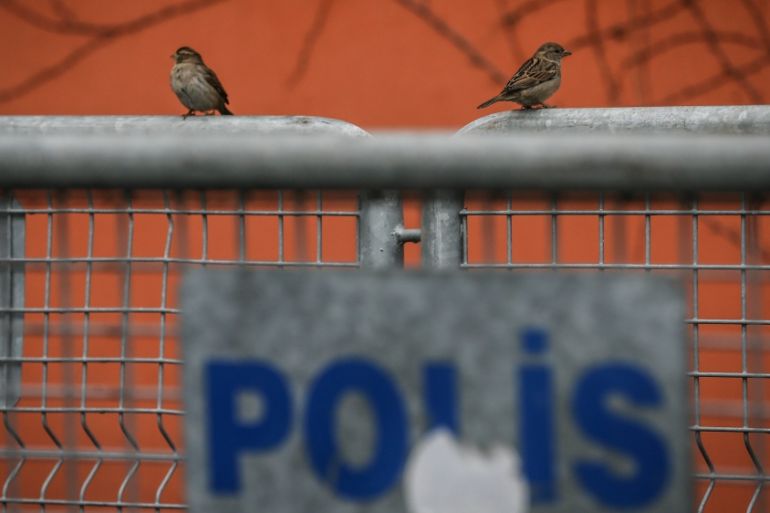Turkey orders 532 arrests over Fethullah Gulen links
Investigation being conducted in 62 provinces as part of a sustained crackdown against the network of US-based preacher, state media says.

Turkish prosecutors have ordered the arrest of 532 suspects, including 459 serving military personnel, in an operation targeting people linked to Fethullah Gulen, the Muslim preacher and businessman Ankara says was behind a 2016 attempted coup, according to Anadolu news agency.
The investigation, announced on Monday, was being conducted in 62 provinces as part of a sustained crackdown said to be targeting Gulen’s network that has gone on since the coup attempt.
Keep reading
list of 3 itemsTurkey seeks arrest of 149 for suspected Gulen links: State media
Turkey jails 22 former soldiers for life over 2016 coup attempt
Ankara has, for years, accused supporters of the US-based Gulen of establishing a “parallel state” following its own agenda by infiltrating the police, judiciary, military and other state institutions.
Istanbul prosecutors ordered the arrest of 258 suspects while prosecutors in the western city of Izmir sought the detention of 274 people.
Frequent operations
Gulen denies involvement in the coup attempt, in which some 250 people were killed, excluding the putschists. A former ally of Erdogan, he has lived in self-imposed exile in the US state of Pennsylvania since 1999.
In the wake of the coup attempt, tens of thousands of people were held pending trial, and civil servants, military personnel and others were sacked or suspended. More than 20,000 people have been expelled from the Turkish military.
Turkey has been condemned by its Western allies and rights groups over the crackdown, purges and erosion of judicial independence following the coup attempt.
Critics accuse the government of using the incident as a pretext to silence opposition in the country.
The government says the purges and arrests are in line with the rule of law and aim to remove Gulen’s supporters from state institutions and other parts of society.